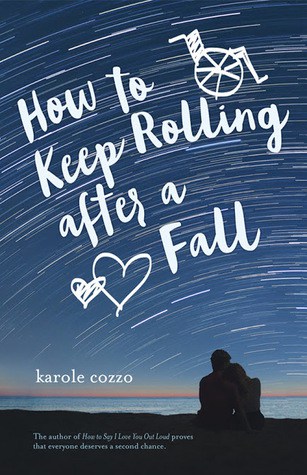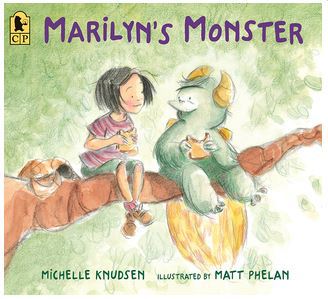
I started reading How to Keep Rolling After a Fall, but I’m not going to finish it. It was bad on so many levels. It was poorly written and not very interesting, and the characters were mediocre and unlikable at best. But, the worst of it all is that the premise of this book isn’t even remotely plausible. Here’s the synopsis from Goodreads:
The party was at her house. The photos were posted to her Facebook account. That’s all the evidence anyone needed to condemn Nikki Baylor for a cyberbullying incident that humiliated a classmate and nearly resulted in the girl’s suicide. Now Nikki’s been expelled from her old school, her friends have abandoned her, and even her own parents can’t look her in the eye. With her plans for the future all but destroyed, Nikki resigns herself to being the girl everyone hates—almost as much as she hates herself. But then Nikki meets Pax, a spirited wheelchair rugby player who knows what it’s like when one mistake completely shatters your life. Refusing to judge her because of her past, he shows her that everyone deserves a second chance… and everyone deserves to be loved.
This book starts at least months after “the incident,” if not longer. At the start of the book, Nikki’s father won’t look her in the eye, her mother has no patience for her, she’s grounded from everything except community service, and the entire town treats her like a pariah, including the students at her new school, Atlantic Christian Academy.
I don’t even know where to start.
Nothing about this scenario is plausible. Here’s what actually happened during “the incident”: Nikki, one of the five popular girls, throws a party. The bullied girl, Taylor, gets drunk at this party and starts sleeping with every guy she sees, including one of the other popular girls’ recent exes. Said popular girl catches Taylor in a threesome at the party, snaps a picture, and uploads it to Nikki’s Facebook account, where it’s taken down twenty minutes later by Facebook management. Taylor cries bullying, threatens suicide, and makes a half-hearted attempt that amounts to taking a handful of Tylenol. The court case is thrown out, but Nikki is expelled and forced to do community service and group therapy anyway, because none of her friends would fess up and no one would believe that it wasn’t just her doing.
Even given that this incident would still be a big thing months later (it wouldn’t), most people just wouldn’t care. People are inherently selfish, and teenagers have the attention span of a gnat. There is absolutely no chance that everyone Nikki knows would shun her. You’d have the subset of kids who didn’t like Taylor, and wouldn’t care. You’d have kids who would have mocked Taylor’s bad choices and/or pathetic attempt at suicide, and wouldn’t care. You’d have kids who don’t concern themselves with drama, and wouldn’t care. You’d have the geeks and the nerds who don’t go to parties, and wouldn’t care.
…are you seeing a trend here?
Then we get to her new school, where everyone, again, shuns her, except one girl who is also shunned, who finds out what Nikki did and goes off on a poorly-written, overly-dramatic rant about how Nikki is just like the popular kids who made fun of her, despite the fact that Nikki has been nothing but nice to her. That’s about the point that I quit.
I went to a Christian high school. That’s not how it would have happened. Everyone would not have shunned her. Not only do Christian schools have the aforementioned kids who just wouldn’t care, they also have the overly preppy Christians who would have jumped at the chance to love on a sinner. They have the kids with no social abilities whatsoever who would have gone up to her on the first day and introduced themselves. And they have teachers who would have given her a second chance, because that’s what Christians are supposed to do.
Now let’s talk about her parents, who won’t look her in the eye months after the fact. They didn’t believe her side of it, that it wasn’t just her fault, and now they’re punishing her in every part of her life. Okay, maybe she hasn’t been previously trustworthy, so that’s why they didn’t believe her side of it. Sure. And maybe they know she’s not a nice person, so yeah, that deserves punishment. But it’s not like Nikki went up to this other girl and punched her in the face every day for a year and called her fat and slutty and a whole host of other mean names. She posted one picture. Of something Taylor actually did. That was taken down twenty minutes later. You don’t want pictures of yourself on the Internet? Don’t do dumb things.
And then of course there’s Nikki’s thirteen-year-old sister, who was apparently kept from “all the craziness” and knows almost nothing about what happened, and so she still loves Nikki. Unlike, you know, everyone else. I’m sorry, but have you met a thirteen-year-old? She’s in high school. If the whole town is up in arms about this thing that happened however long ago, she would have heard about it. Maybe if she were six or seven. But goodness. Thirteen?
When I went to read reviews to see if this novel was worth finishing (spoiler: it’s not), none of them brought up any of these points. All the negative reviews I saw claimed either bad writing (yes) or inspiration porn (I didn’t get that far, but I believe it) or “she never said sorry!” (literally all YA heroines are self-absorbed). Nobody talked about the utter implausibility of everything.
Bullying has become such a hot topic, such a taboo subject, no one takes the time to actually consider the societal effects outside of the bully and the bullied. Bullying equals bad. Causing someone to consider self-harm by bullying? The worst. End of equation. It’s just accepted that bullies are the lowest common denominator of society and everyone agrees on that and will always agree on that.
This is the effect of the media: blind acceptance, even in the face of sheer improbability. Yes, bullying is bad, and bullying to the point of harm is worse. Duh. But here’s the kicker: No one cares. If an event doesn’t affect someone directly, they won’t care. You’ll get a moment of sympathy, a Facebook status like, and maybe even a vote for prom queen. Maybe. If you’re lucky.
People have their own lives to deal with, their own problems, many much bigger than this small idiocy.
Maybe most people who read bad contemporary YA aren’t the thinking type, and that’s why nobody noticed this story couldn’t actually exist outside of the pages of the book. Maybe they have no self-worth and hope that if they ever get bullied, everyone would still care months later. Or maybe the media is slowly sucking away our power to think and we’re closer to 1984 than we thought.
Don’t let Big Brother win. Think about things as you read them, before you share them, when you see them. Don’t spout buzzwords until you’ve formed your own opinion about them.
And, for the love of all that’s good in this world, if you’re going to write a novel, make it plausible.
Advertisements Share this:




